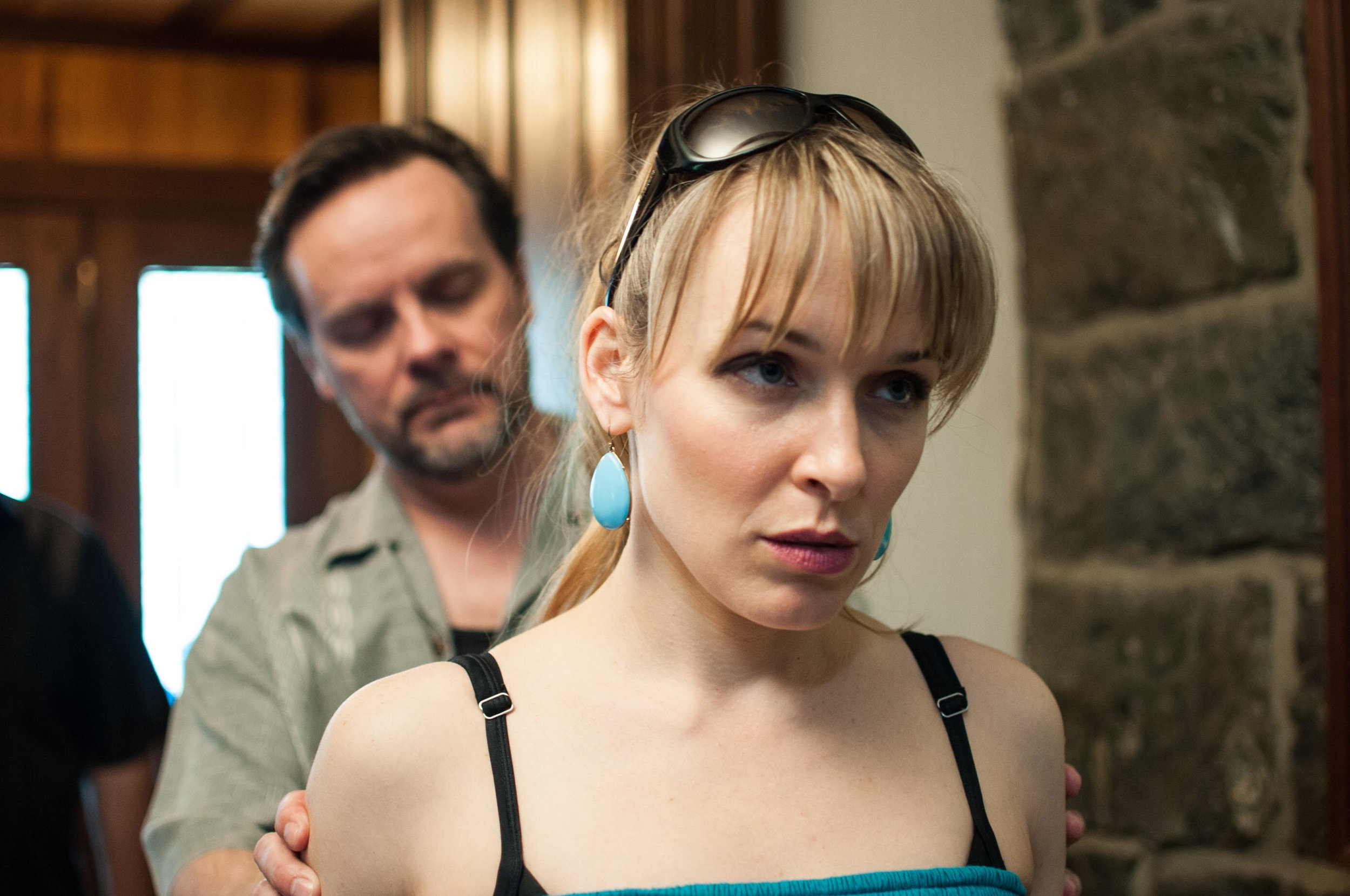Comedian, actor, podcaster, professional wrestling commentator, AND tour guide Rivers Langley is from the great state of AL and is now living in the endlessly fascinating city of LA!
Langley took some whispered advice of a dying prospector promising that there was “gold in them thar hills" in California. So in 2012, he saddled up, rode out west to pursue a career in comedy and represent the great state of Alabama.
He hosts “The Goods from the Woods”, one of the longest-running independent comedy podcast in Los Angeles. He was the host of "Unnecessary Evil" at Westside Comedy Theater which was recently named by LA Weekly as one of the Top 10 stand-up shows in Los Angeles. Rivers has also appeared on the Cooking Channel's "Food: Fact or Fiction?", Comedy Central's "How To Be Broke", and Funny or Die's "Test Tube" as a member of the sketch group Hush Money.
He also had a mining company but folded in early 2013.
Introduce yourself.
I’m Rivers Langley. I’m a stand-up comedian, podcaster, professional wrestling commentator, and tour guide based out of Los Angeles, California. I was born and raised in Auburn, Alabama; a true townie. My folks are both retired school teachers. I went to Auburn High School and Auburn University where I studied English Literature and History. While at Auburn, I worked at the campus radio station, WEGL 91.1 FM, all four years I was there. By the time I graduated in the Fall of 2009, I was doing 10-12 hours of airtime per week up at WEGL. I was hosting the daily news show where we’d do comedy bits and cut it up with callers on the air. In addition to the news show and two long music shows on Sunday, I would also just hang out at the radio station during the day and if someone didn’t show up for their show, I’d jump on and fill time between classes. It was, by far, the best thing I did in college. That’s how I learned broadcasting and audio editing. I now host “The Goods from the Woods”, one of the longest-running independent comedy podcast in Los Angeles.
Why did you decide to move out to LA?
Like a lot of people, when I got done with college in 2009, there was the huge question of “Now what?” just kinda hanging over my head. I spent almost a full year in suspended animation at Auburn. I was a substitute teacher, I delivered pizzas, and I made a couple of short films with my friends. All of that was fine and good, and I think a lot of people can probably relate to this, when you find your thing it feels like you’ve got the holy spirit or something. I started doing stand-up in Auburn at the tail-end of 2010 and immediately fell in love with it. The problem was that there wasn’t a whole lot of stage time locally so I’d drive up to the open mics in Birmingham and Atlanta. At some point in mid-2011, I made the decision to try and pursue stand-up full-time and set my sights on the West Coast for the simple reason that it’s warm and there are a lot of opportunities. I worked as a delivery driver at Steak-Out in Auburn and saved up my tips for a year and a half. On July 16, 2012, I put my whole life in a Nissan hatchback and left Auburn. I had a brief stop-over in the San Francisco Bay Area (Had one REALLY crazy night where I had to follow Robin Williams at an open mic at a bar called “Dirty Trix Saloon”!) before moving to L.A. on Labor Day 2012.
Now it’s 9 years later and I’m still having a great time out here. I’m doing stand-up as much as I can, I host a podcast that a lot of folks seem to like, I do ringside commentary for a local professional wrestling promotion, and I’m a private tour guide. The tour guide gig is the best day job I’ve ever had. I get to go on vacation with people for a living! I drive folks around L.A. to all the touristy hot spots, take family pictures, talk about the history of my favorite city in the country, and crack jokes all day long. I honestly couldn’t ask for more!
*This is where I meet Rivers on a tour bus. Photos below.
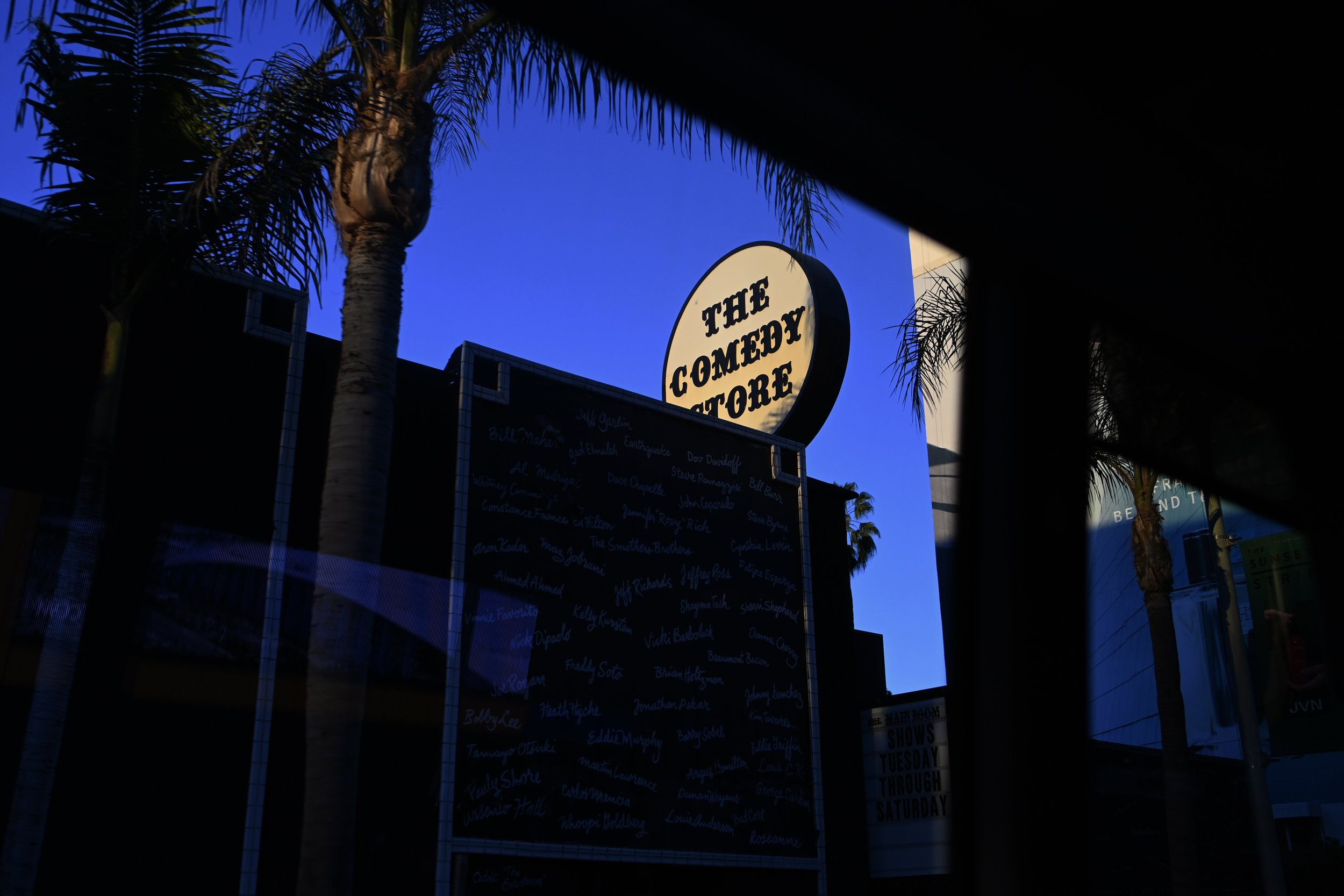
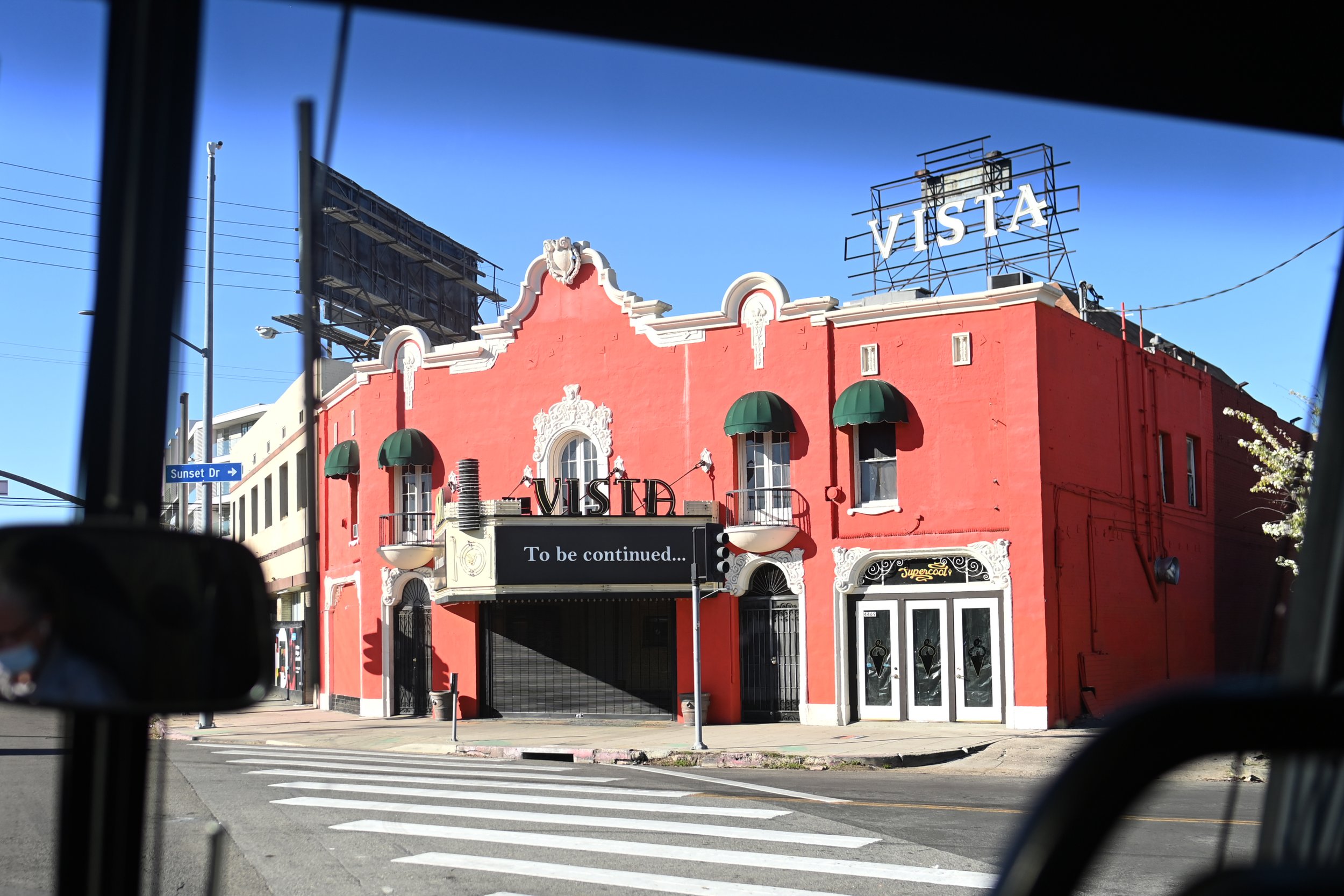

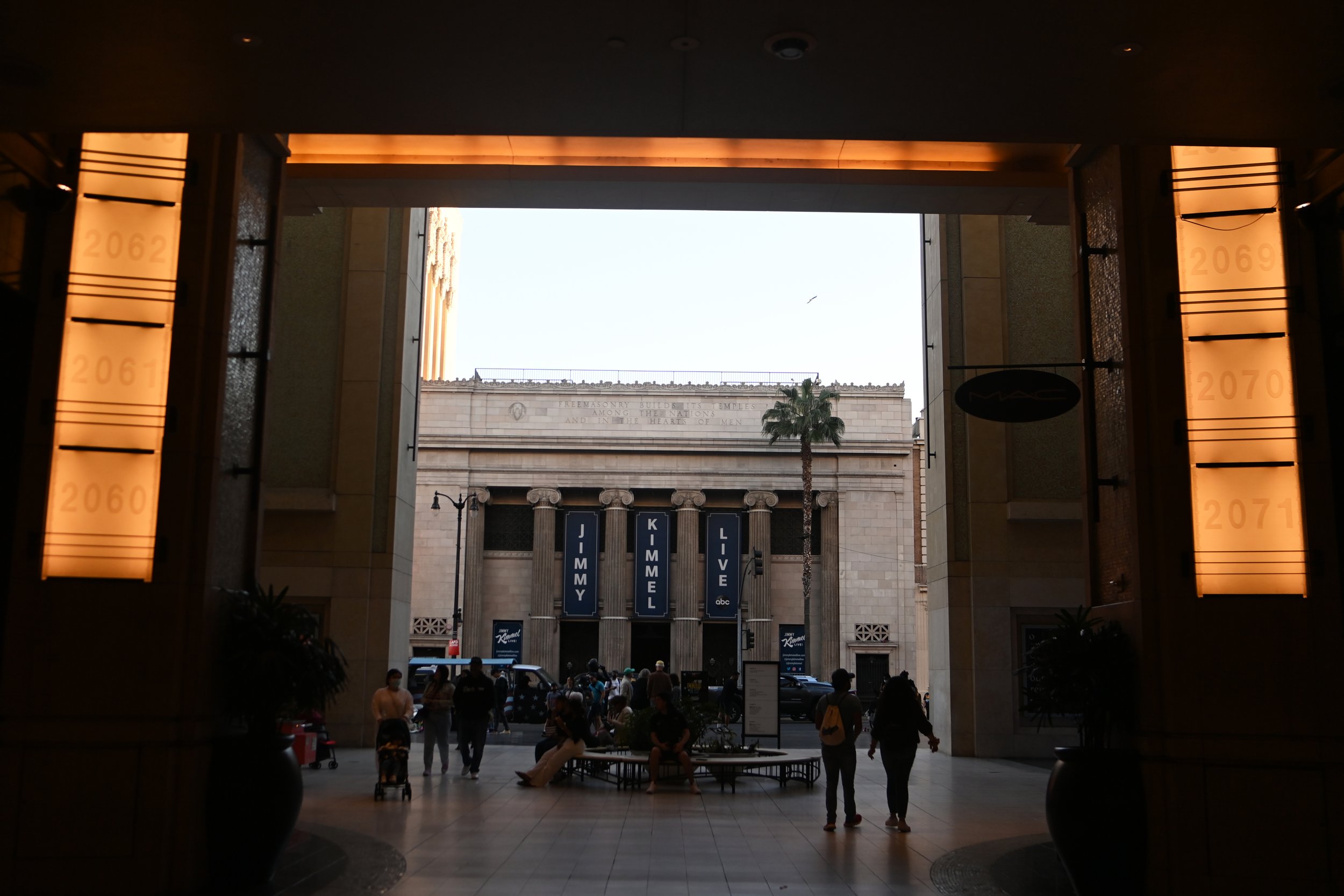
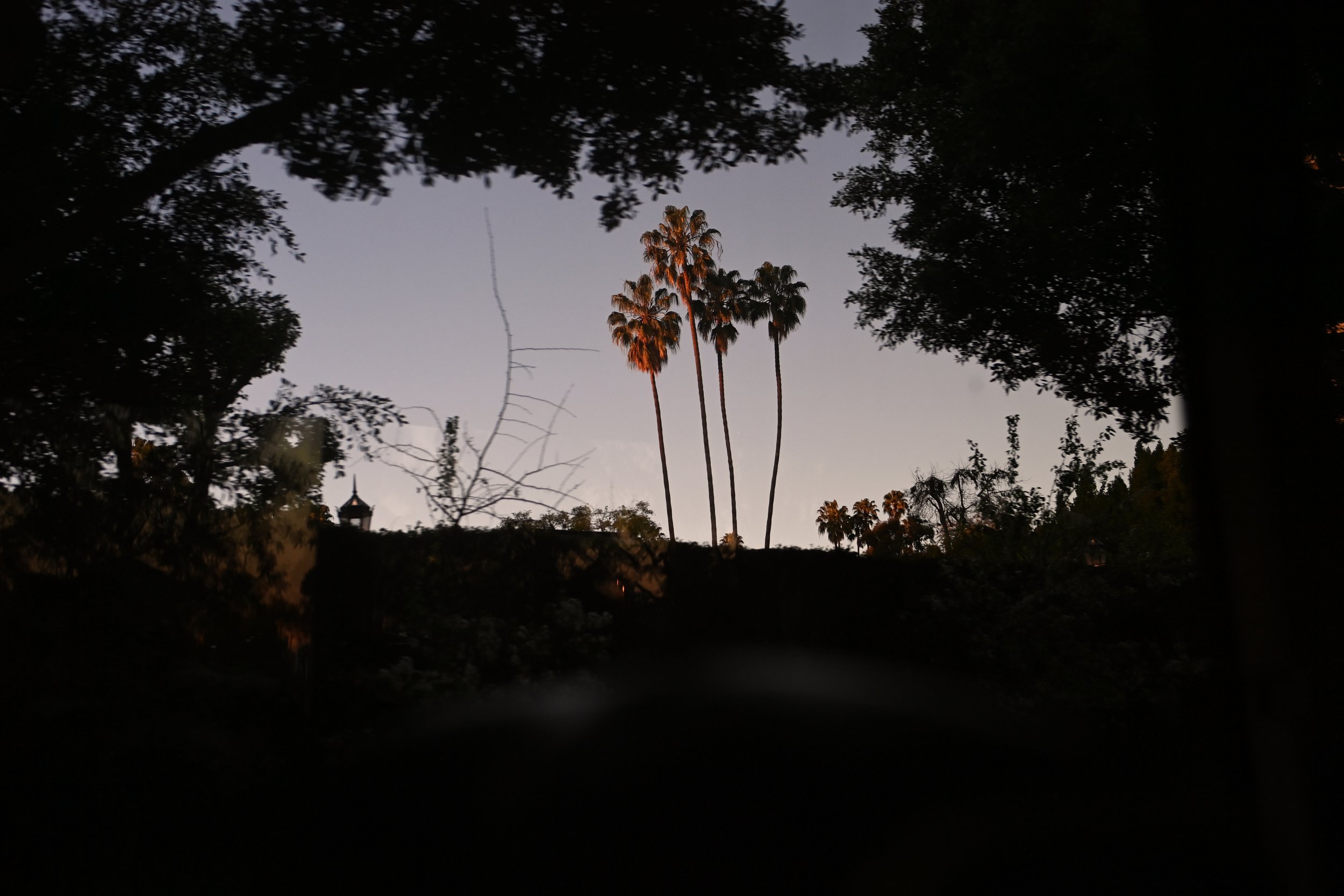

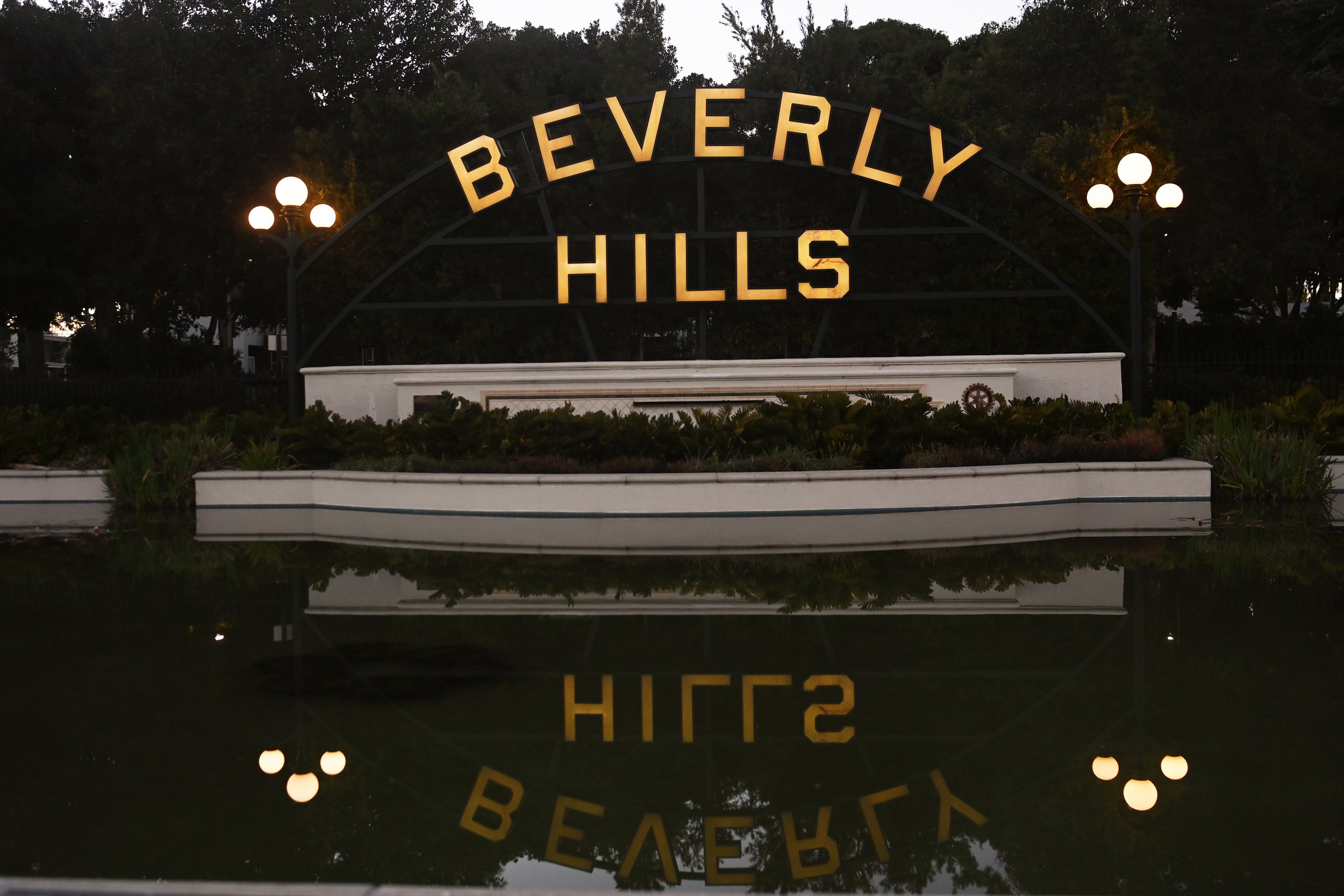
How has growing up in Alabama influence your comedy? What are some things you learned growing up in AL that has helped you navigate through LA?
Alabama was an excellent place to start doing stand-up for the simple fact that the scene is almost all DIY (do it yourself). There are two clubs in the whole state and, obviously, they aren’t going to have stage time for all the locals so, if you want stage time, you have to learn how to produce shows yourself. With that comes to hazards of doing comedy in non-traditional spaces (bars, coffee shops, restaurants) that weren’t necessarily designed for that but it teaches you how to adjust on the fly and make stuff work. Some of my fondest memories of comedy are doing a bar show in Alabama that shouldn’t have worked but it did somehow.
What is your style of comedy?
This is always the hardest question to answer because it can be a bit limiting. I am absolutely not above doing a one-liner or a physical act-out. There’s not a whole lot I’m gonna steer away from on stage if I think it’ll get a laugh at the moment. That said, I suppose it’s best described as a storytelling style. I’ll have something happen to me that strikes me funny and then it’s my job to build a joke around it. Sometimes I’ll have stories that I wanna tell but I just haven’t found the angle on it so it just sort of sits in my brain as a funny thought or anecdote but not a joke. Then, one day, I find the joke, and then it’s ready to go but that process can sometimes take a while. I have things in my brain from 2017 or whatever that I still haven’t found the right angle on!
What comedians inspire you?
George Carlin: It’s an obvious one but Class Clown was the first stand-up record I ever heard and, despite being recorded in 1972 almost all of it still holds up really well. My dad is from New York City and is an ex-Catholic school kid so George Carlin is the patron saint of the house that I grew up in.
Debra DiGiovanni: Debra is from Canada originally but is now local to Los Angeles and THANK GOD because that means I get to do shows with her sometimes and see her perform all the time! On stage, Debra is a legitimate force of nature. Her energy level is incredible and her jokes are amazing. She will hit you with one big joke and, while everyone is still laughing at that, she’ll hit you with three quick ones so you’re not even able to breathe while she’s on stage. Debra DiGiovanni is a joke machine gun and she must be seen to be believed. I don’t know if I can say that she “inspires” me because I just sit there watching her and think “Welp, I can’t do what she’s doing. She’s on fire; a whole ‘nother level” but she makes me want to work harder at what I’m doing.
Roy Wood Jr.: Roy’s from Birmingham and is probably Alabama’s most successful comedian and for good reason. I first met Roy in Los Angeles around 2014 when he was nice enough to perform on my show at Westside Comedy Theater in Santa Monica. Roy is one of the nicest, most down-to-earth dudes you’d ever want to meet. Now, I say this next thing not just because I know the guy but because it’s absolutely true: Roy Wood Jr. is legitimately one of the greatest stand-up comedians working today. If you see him doing small, 15-minute sets around L.A. he’s obviously a crusher but the real magic is watching Roy do long-form stuff. I got to see him do an hour at Auburn University in 2019 and it was one of the most incredible stand-up performances I’ve ever seen. I love the way he plays with silences and uses the audience’s discomfort with some of the things he’s saying to achieve a bigger laugh at the end when he hits the punchline like a pressure valve and releases the tension; a comedy Jedi master. I could get really metaphysical about it but I’d just encourage folks to watch or listen to his new special Imperfect Messenger and y’all will see what I mean.
Do you ever come back to Alabama?
I’m usually home at least twice a year (Three times if someone getting married or something) to see my folks and all my friends who still live in Auburn. I’m always home at Christmastime and then again in the Spring. I’ve been the emcee of the Old 280 Boogie Music Festival in Waverly, AL since my college radio days so I’m always home in late April for that event. While I’m home, I like to book as many stand-up gigs as I can.
I am gonna be back in Huntsville on May 6th at “Awesome Comedy Hour” at Liquor Express and Craft Beers. Like I said, just follow me on Twitter and listen to “The Goods from the Woods” podcast. I’ll post and mention all my dates there.
Talk about the comedy scene in LA and the comedy scene in AL
I cannot stress how unbelievably huge L.A.’s comedy scene is. There are obviously the famous Hollywood clubs (The Comedy Store, The Laugh Factory, and The Improv) but there are also small independent comedy theaters as well as one-nighter comedy shows in every bar, coffee shop, restaurant, art gallery, bookstore, and anywhere else in town that you can fit a mic stand, a light, and a couple of chairs. Kick a loose brick in Los Angeles and a comedy show falls out. That can prove to be overwhelming for a lot of people and they just kinda stick to the neighborhoods and places they know. Personally, I like to switch it up and go everywhere. I do shows in venues all around L.A. and Los Angeles County. Honestly, the weirder and more non-traditional the venue, the better. I’m opening for a REALLY incredible comedian named Katrina Davis who’s doing a one-woman show at a gallery space on April 2nd. Just check my social media (Twitter and Instagram) @RiversLangley to see where I’m gonna be. I also do ringside commentary for a pro wrestling promotion called “Wrestling Pro Wrestling”. It’s an absolutely insane comedy show that features crazy characters and some really top-notch professional wrestling. That show is once a month. They’re on Twitter @WrestlingPW. Check that out to see when those shows are gonna be.
As for the Alabama comedy scene, understand that I’ve been out of the loop for 9 years so I’m not really qualified to speak on it aside from what I’ve observed when I’m home. That said, it’s been incredible to watch the rise of Huntsville as one of America’s best comedy cities. That can be credited to folks like Scott Eason who has run Epic Comedy Hour at Lowe Mill with my ol’ college radio pal Tim Kelly for over a decade now! Ask any comedian who’s done the show what they think and you’re going to get a glowing review. I always say “If you can’t kill it at Epic Comedy Hour, you should quit.” I just got a chance to do Stand-Up Live in Huntsville for the first time back in December and it was a great venue too! Birmingham is the place I claim as my original scene and there’s a lot of cool stuff happening there. One of my best friends in the world is Wes Van Horn. Wes is one of the funniest people I’ve ever been around and he’s been running some great shows out of Avondale Brewing Company. There’s also Alice Whatley and Lauren Lamphere who run a comedy collective in Birmingham called “Laugh Garden”. They do these really cool variety shows with music and comedians that everyone should go check out. So, even though I’m not super plugged into the scene in Alabama as I was before I left, from what I can tell it’s really vibrant and there are still young people doing it, so that’s kinda all you need.
Any tips for aspiring new stand-ups
If you’ve already started doing stand-up, keep going and say “Yes” to absolutely everything you’re comfortable with. The weirdest venues in towns you’ve never heard of can sometimes be the most fun. I did a comedy festival in the Yukon Territory up in Canada (basically the Arctic Circle) and those were some of the most fun shows I’ve ever done. Overall, the only piece of advice that I feel comfortable giving is this: Set your goals high and expectations low, and then just have fun. If you haven’t started doing stand-up yet but you’ve been thinking about it, do it. Do it now. Do not wait. I started doing stand-up when I was 24 years old. My only regret in life is that I didn’t start earlier.
Any topics that a stand-up comedian should avoid should be free to joke about anything?
You can joke about anything but make sure it’s funny. Part of that is making sure the audience finds you credible to speak on the subject. That’s why I always tell people to write about either what they know or what they’d actually like to know. Patton Oswalt once said that all jokes should be a discovery. Either it’s a set-up with a punchline the audience didn’t see coming or it’s the comedian approaching a subject from a place of ignorance and then figuring it out by the end. The joke isn’t done until you figure it out. I think that’s a great way to approach it. It’s like the thing I said about Roy earlier, use your words to build tension but make sure you’re building to SOMETHING. Don’t just say inflammatory stuff for the sake of doing it. In professional wrestling, that’s called “Cheap Heat”. Anyone can do it and if it’s done just for its own sake then why bother?
_____
Interview by Cristina Byrne Sternberg























